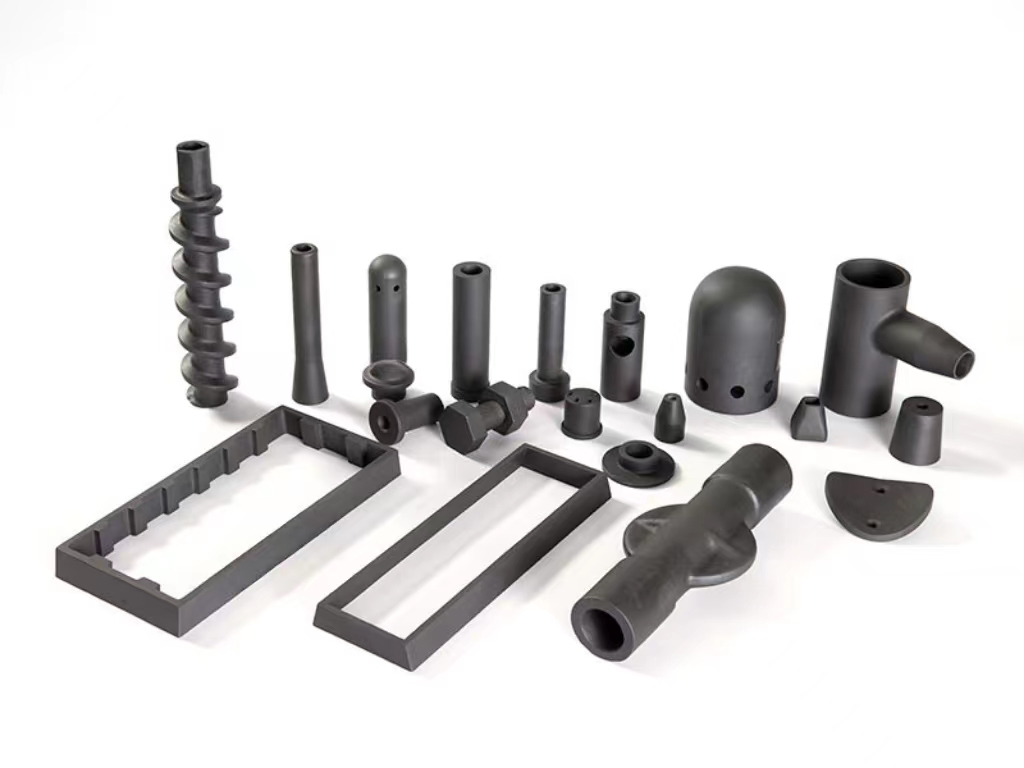Silicon carbide ceramics, commonly known as SiC ceramics, are a type of ceramic material with high hardness and excellent thermal conductivity. The hardness of silicon carbide ceramics is an important property that determines its applicability in various industries.

The hardness of silicon carbide ceramics is primarily influenced by two factors: the type of silicon carbide used and the fabrication process. There are two common types of silicon carbide ceramics: Reaction-Bonded Silicon Carbide (RBSIC) and Sintered Silicon Carbide (SISIC). RBSIC is made by infiltrating molten silicon into a preformed carbon structure, while SISIC is produced by sintering silicon carbide powder with a binder at high temperatures.
Both RBSIC and SISIC have high hardness values, with RBSIC typically having a hardness of around 2200-2500 HV (Vickers hardness) and SISIC having a hardness of approximately 2800-3300 HV. These values are significantly higher than those of traditional ceramics such as alumina or zirconia.
The high hardness of silicon carbide ceramics can be attributed to its unique crystal structure. Silicon carbide is a compound of silicon and carbon, with a hexagonal crystal structure similar to that of diamond. This crystal structure provides silicon carbide ceramics with exceptional hardness, making them suitable for applications where wear resistance and durability are critical.
The hardness of silicon carbide ceramics also contributes to their excellent mechanical properties. Silicon carbide ceramics exhibit high strength, stiffness, and fracture toughness, allowing them to withstand extreme conditions and mechanical stresses. These properties make them ideal for use in high-temperature environments, such as furnace components, heat exchangers, and cutting tools.
In addition to its hardness, silicon carbide ceramics possess other desirable properties. They have excellent thermal conductivity, which enables efficient heat transfer and thermal management. Silicon carbide ceramics also have a low coefficient of thermal expansion, meaning they can withstand rapid temperature changes without cracking or warping.
In conclusion, the hardness of silicon carbide ceramics, whether RBSIC or SISIC, is significantly higher than that of traditional ceramics. This high hardness, combined with other exceptional properties, makes silicon carbide ceramics suitable for a wide range of applications, including in industries such as aerospace, automotive, electronics, and energy.












